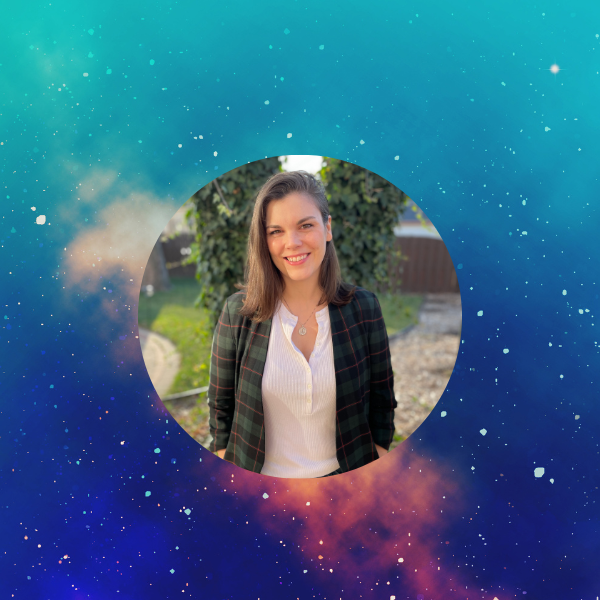The end of the world is imminent in the novel If Tomorrow Doesn’t Come by Jen St. Jude. Avery, a college student, is grappling with wanting to die by suicide as she receives news that an asteroid is set to hit Earth in a matter of days. What would be a time of panic becomes a time for reflection and focus on what matters, including her love for her best friend, Cass.
My conversation with Jen St. Jude includes letting go of, not triggering readers, and why she chose the setting for the story.
What is your definition of feminism?
It’s a commitment to liberation, empowerment, equality, and health for all people. We live in a misogynistic, racist, transphobic, ableist society; feminism is a collection of actions and ideologies that push back against those forces and reach toward a more just world. This also means working against our own internal biases we learn from our world.
Characters grapple with religion, sex, and gender. How did you create these parallels, empower Cass and Avery, and inform Avery’s parents?
Bigotry and hate are never excusable, but sometimes you can understand the root of them when you dig into someone’s upbringing. Only that person can dig it out, though. It was important to me to have characters who cause harm because of their flawed thinking, but who actively choose to grow and understand more about the people they love and the world around them. I also think it would be natural for Cass and Avery to talk about these things because they’re asking so many questions about themselves and each other.
How did you make this catastrophic time also a time of reflection and letting go of fear?
Sometimes I feel like I live two lives—one based in our [perception of] reality—who knows how long I’m going to live for? Who knows how long my loved ones will be here? I act accordingly. And then the one where I’m white-knuckled, clinging to my own mortality, wanting to shake myself and everyone else and yell, “Don’t you know how short this life is? Why are we holding back on loving and living and experiencing every single thing we can?” It makes me sad about everything we’ll all miss out on, but it’s tricky. Because we can’t live like that every day all the time. It’s too reckless and short-sighted. Still, it’s helpful to imagine what you’d want to say and do because maybe it is possible after all, even if it’s not in this moment.

Was there a sensitivity reader as Avery wanted to die by suicide? The scenes were impactful and elevated Avery as a character.
I had so many people read this novel at all stages because I was so concerned about triggering readers. It can be a hard balance: how do you talk about something that desperately needs to be talked about, to combat shame and isolation, while at once respecting and taking responsibility for the way people might experience that? I had two high school counselors read it, along with many friends who have lived with depression, other mental illness, and suicidal ideation. Despite the many readers on this book, I can’t promise it won’t impact anyone negatively, and I sincerely hope readers step away if it feels like it’s too much. Some books need time to return to.
Why did you decide to have the characters in New England and part of New York City as a setting for the story?
I’m from New Hampshire (and have also lived in Maine and Massachusetts) so it felt like the most natural place to set the story. New York feels so symbolic of dreams and diversity and big-scale everything. It felt like the opposite of home and safety for kids like Avery and Cass who grow up in the woods. I have many loved ones in New York and so I visit often, but I still feel terribly small there. I think that’s good for a person sometimes, though.
I want a Queer Asteroid jumpsuit. What piece of clothing would you have from the clothing line?
Ugh, same! I’m sort of obsessed with fashion only because I haven’t figured it out at all, and I really want to. I have yet to have that Cass and Avery moment where they’re looking in the mirror thinking, Yes! That’s me. I would love a navy suit with plaid piping like Cass describes. Classic suit wear with a pop of personality.
What organization is important to you that you would like to amplify to our audience?
Here in Chicago, I always admire the work being done by Brave Space Alliance. In New Hampshire, NAMI is always a fantastic. Finally, I’ve been trying to raise money for NYC’s Ali Forney Center to keep a LGBTQIA+ kid off the street for a month.
Thank you, Jen St. Jude, for talking with Feminist Book Club about If Tomorrow Doesn’t Come!


